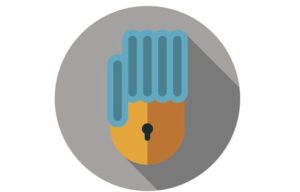“…the subject of the testing was PalmID, Redrock’s Artificial Intelligence-powered software designed to leverage a high-resolution camera with an LED or flash light in order to take high-quality palm images for biometric authentication.

San Francisco-based Redrock Biometrics has become the first palmprint biometrics specialist to attain Level 1 Presentation Attack Detection (PAD) compliance in testing against the ISO 30107-3 standard.
The testing was conducted by the prominent iBeta lab, one of the only testing labs accredited by the National Institute of Standards and Technology (NIST) under the National Voluntary Laboratory Accreditation Program (NVLAP) for Biometric Testing. And the subject of the testing was PalmID, Redrock’s Artificial Intelligence-powered software designed to leverage a high-resolution camera with an LED or flash light in order to take high-quality palm images for biometric authentication.
The testing took place over the course of 14 days, and was conducted using a standard iPhone 8 smartphone. iBeta researchers conducted about 720 presentation attacks against the PalmID system, attempting to fool it with everything from high-quality photos of subjects’ palms to 3D synthetic casts. Despite having the full cooperation of subjects enrolled on the iPhone, none of the presentation attacks were successful.
Commenting on the achievement in a statement, Redrock Biometrics CEO Hua Yang emphasized PalmID’s capability of using standard mobile cameras to perform sophisticated, spoof-proof biometric scanning. “Biometrics is no longer constrained by dedicated scanners,” he said. “Using existing cameras, biometric software now delivers high accuracy, low cost and fast deployment.”
In attaining Level 1 PAD compliance, Redrock has is now one of a select few biometrics specialists to have reached the milestone, alongside FaceTec and HID Global. And given that the company only just got into a startup accelerator program run by Wells Fargo in late 2017, it signals a particularly rapid ascent in terms of technological development and expertise.
–
July 26, 2019 – by Alex Perala






Follow Us